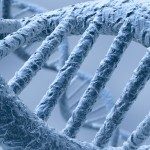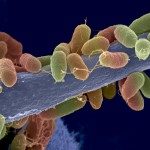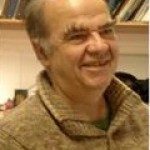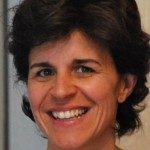Lien vers Pubmed [PMID] – 23483996
PLoS ONE 2013;8(3):e58203
The bacterial and fungal communities associated with dandruff were investigated using culture-independent methodologies in the French subjects. The major bacterial and fungal species inhabiting the scalp subject’s were identified by cloning and sequencing of the conserved ribosomal unit regions (16S for bacterial and 28S-ITS for fungal) and were further quantified by quantitative PCR. The two main bacterial species found on the scalp surface were Propionibacterium acnes and Staphylococcus epidermidis, while Malassezia restricta was the main fungal inhabitant. Dandruff was correlated with a higher incidence of M. restricta and S. epidermidis and a lower incidence of P. acnes compared to the control population (p<0.05). These results suggested for the first time using molecular methods, that dandruff is linked to the balance between bacteria and fungi of the host scalp surface.





